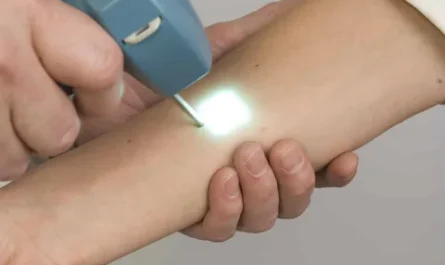New research conducted by scientists at Baylor College of Medicine reveals that aging increases the vulnerability to urinary tract infections (UTIs) due to changes in the cellular functioning of the urinary tract. The study, published in the journal Developmental Cell, also discovered that the dietary supplement D-mannose can alleviate the decline in urinary tract functionality associated with aging, potentially reducing the incidence of UTIs.
The researchers focused on the changes in urothelial cells, which line the bladder, in aging animal models. They found that the process of autophagy, a cellular mechanism that eliminates old or faulty materials, slows down naturally as cells age. This results in the accumulation of larger lysosomes, which are less effective in breaking down cellular materials. As a consequence, toxic substances build up inside the cells, causing inflammation and cell death. This leads to the shedding of urothelial cells, disrupting the integrity of the bladder and exacerbating age-related dysfunction.
Additionally, aged urothelial cells experience an accumulation of reactive oxygen species (ROS), which are molecules that can damage tissues. The redox response, responsible for neutralizing ROS in younger cells, becomes compromised in aging urothelial cells. This further contributes to the inflammatory process and cell death.
To study the impact of aging on UTIs, the researchers compared older animals to younger animals and found that aged mice were more susceptible to spontaneous recurrent UTIs and had a higher number of bacterial reservoirs in the urinary tract. This suggests that age-related dysfunction of the urinary tract tissue could explain the higher recurrence of UTIs observed in older individuals.
However, the researchers discovered that supplementing aged mice with D-mannose, a natural sugar, restored autophagy and reduced the accumulation of ROS and shedding of urothelial cells. These findings indicate that D-mannose supplementation could alleviate age-related urothelial dysfunction and potentially reduce the recurrence of UTIs in humans.
The study’s lead author, Dr. Indira Mysorekar, professor of medicine—infectious diseases and E.L. Wagner, M.D., Chair of Internal Medicine at Baylor, emphasized the implications of the study’s findings. She stated, “Importantly, our results demonstrate that normal aging affects bladder physiology, with aging alone increasing baseline cellular stress and susceptibility to infection. We suggest that mannose supplementation could counter age-associated urothelial dysfunction in addition to limiting recurring UTIs.”
Further research is needed to fully understand the mechanisms behind the correlation between aging and UTIs, as well as to explore the potential of D-mannose supplementation as a preventive measure for UTIs in the elderly population.
The study’s co-authors include Chetanchandra S. Joshi, Caihong Wang, Marianne M Ligon, Rayvanth R. Chappidi, Bisiayo E. Fashemi, Paul A. Felder, Amy Mora, Sandra L. Grimm, and Cristian Coarfa.
*Note:
1. Source: Coherent Market Insights, Public sources, Desk research
2. We have leveraged AI tools to mine information and compile it



